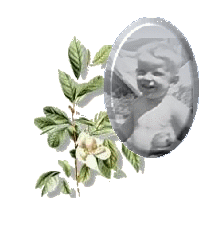
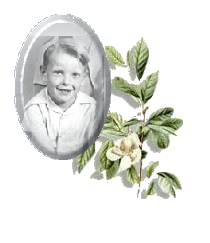
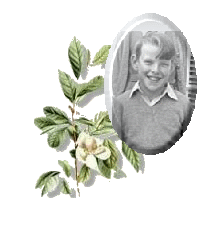
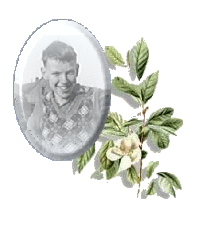
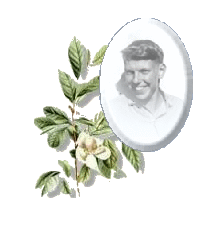
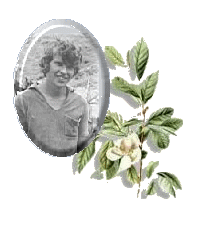




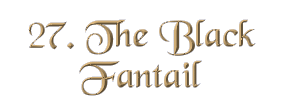
I suppose with the Second World War just twenty years done, it was natural that the school was still in war mode. For a never-ending week in the first term, and then on various days throughout the year, we had Barracks. Trentham Military Camp was up the road. It all came as a bit of a shock. One fine Friday afternoon we were sent to claim our camphor-smelling army uniforms from the back of a truck. "Sandpaper Suits" they were called. If you don't know why they're called that, try walking with a bit of sandpaper between your legs. We had sandpaper shorts, sandpaper jackets, and sandpaper army caps. Each had brass buttons, which had to be highly polished each night. The dormitories reeked of camphor and stinking socks and Brasso. We were trained by senior students who had been promoted for their love of discipline. They had gone away on special camps during the holidays to learn how to yell at people. They learned to laugh at cruelty. They learned to swim out of their depth and save themselves in a blaze of "DO WHAT I SAY, NOT WHAT I DO". They learned to be despicable, wizened-up, screaming arseholes. They'd be happiest doing their duty in a firing squad. I hated, hated, hated Barracks. 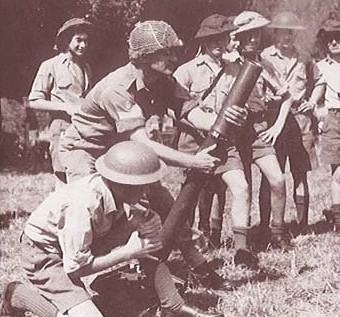
As a special treat we'd cover our heads with foliage and crawl through muddy creeks, firing blanks from our guns like there was no tomorrow - which there wasn't. Then you'd learn to present arms to the self-satisfied chief from Trentham. I almost got promoted. It happened on an afternoon by the tennis courts. "Squad!" roared Lance Corporal Parry. "Attention! Right Dress! Eyes Front!" Then he gave the strangest command. "By the left, right turn!" This was not a command that I'd been taught. Everyone, except for Duignan and myself, turned right. We stood in silence. The pressure of being one of only two facing the wrong direction became over-bearing. Slowly, imperceptibly, I turned to face the right. Only Duignan remained the wrong way. My life was to change, or rather not to change, in those few seconds of turning. For Duignan's name was written down, and he was promoted in a flurry of adulation. "Duignan's the only one who understands when a command is not a command". And Duignan was sent off to join the N.O.C.T.U., and learn to become authoritative, while I stayed a Private for five more years. If only I had not turned! It could have changed my life! On the rainiest week of the year, we were issued with rations and a waterproof army sheet, and taken by army truck into the Akatarawa bush. There we'd set up camp, and at night stand guard and fire blanks from our guns. All night we fired guns. And in the morning we'd march across forest clearings and farmers' paddocks to somewhere else. It was while marching like this that I saw a black fantail. It was pitch black, with a tiny bit of white, and twittered in the branches. Fantails aren't usually black. But I could not stop to look, for I was marching, marching, marching. 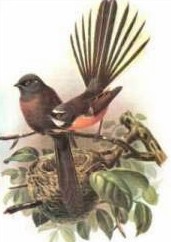
"My cattle are scattered throughout the bush!" he shouted. "Your guns have frightened them in every direction, and I'm going to shoot everyone of you from the smallest up!" He wasn't smiling. Father Cudby was in charge of our group. He was a Captain. He stood in front of the farmer's gun. "You'll shoot me first", he said. Silence. Twitter, twitter, twitter went the black fantail. Slowly, the farmer's gun lowered away from Captain Cudby's chest. We were saved. I prayed that we would not have to shoot guns ever again. But we did. The climax of the army season was the grand parade. Someone from the army, with bits of scarlet on his uniform, would stand at a podium and watch our parade. For hours we marched around and saluted and marched again. For hours we stood in the hot, hot sun, with sandflies eating our knees. And then we'd march again. From where I stood on the battlefield I could see an old house in the hills. In my head I would go to live there, high in the gorse and bush, with no one screaming, and no futile standing at attention. And I would watch the pitch black fantail skip along the cold bush creek catching insects and nesting in the overhanging kowhai with golden flowers and lacy leaves. And then we'd march again. 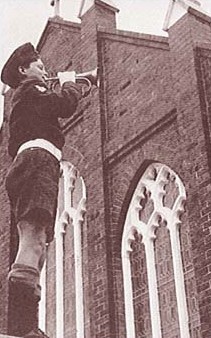
Don't get me wrong. The Yanks did a great job at Pearl Harbour and Hiroshima. It was great that Churchill and his men stopped Hitler in his tracks. And now Vietnam raged. But what we learned in Barracks was warfare without justice, and discipline without mercy. What I learned best of all, was to hate myself. Return to the Previous Chapter Return Home Contact the Author |